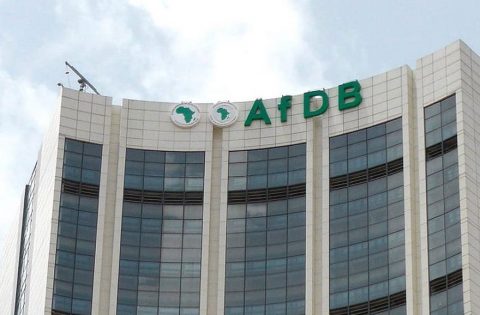Joint Initiative Intensifies Climate Action In Africa
African News, Latest Headlines, News Around Africa Friday, May 6th, 2022
(AFRICAN EXAMINER) – A joint initiative of the African Development Bank (AfDB) and the Global Center on Adaptation is currently mobilizing and expanding the frontiers of adaptation financing mechanisms to mitigate climate change across Africa.
The initiative which is known as the Africa Adaptation Acceleration Programme (AAAP), aims to mobilise $25 billion to drive adaptation across the African continent to strengthen food security for at least 10 million people, support one million youth with entrepreneurship skills and job creation, and integrate climate resilience into about $7 billion worth of infrastructure investments, among other results.
During its recent session organized with the theme, “AAAP: Transformative Adaptation to Accelerate and Scale Climate Action”, a broad range of issues ranging from policy shifts, the enabling environment, financing, community engagement and private sector involvement to accelerate and scale climate adaptation in Africa, were deliberated upon.
Dubbed, the Virtual Gobeshona Global Conference, the session brought together policy makers, sustainable financiers, climate resilience experts and youth advocates to discuss the latest report by the Intergovernmental Panel on Climate Change (IPCC) that calls for increased speed and scale in implementing adaptation actions.
Acting Director, Climate Resilience Practice at the World Resources Institute, Dr. Rebecca Carter said climate change impacts are already occurring, faster and more severely than previous IPCC reports indicated.
“This new report makes it clear that we are already facing irreversible losses and damages to human societies and ecosystems around the world, she added.
Prof. Philip Antwi-Agyei, an Associate Professor at the Kwame Nkrumah University of Science and Technology and Lead Author of IPCC’s special report on the impacts of global warming of 1.5 °C, said there is the need to incorporate indigenous knowledge with scientific knowledge to develop the most effective adaptation interventions and solutions.
Farmers, according to him, use indigenous knowledge to predict drought and rainfall and this knowledge is important for adaptation action.
Corroborating Prof. Antwi-Agyei’s viewpoint, Chitembo Kawimbe Chunga, an official of the Zambia Ministry of Green Economy and Environment said adaptation should be integrated into local and national development plans.
Chunga who is also the National Coordinator of both the Transforming Landscapes for Resilience and Development and the Zambia Strengthening Climate Resilience projects, said laws, policies and regulations on adaptation exist in Zambia that show where and how to adapt, adding that Zambia is working with development partners including the African Development Bank to explore best practices for adaptation and resilience building among communities.
Senior Director for Africa at the Global Center on Adaptation, Prof. Anthony Nyong said that AAAP is a strong response to another crisis: climate change.
What is crucial is that this programme is an Africa-owned and Africa-led response to the continent’s vulnerabilities and opportunities”, he said.
Speaking in a similar vein during the panel discussion on the role of youth in climate adaptation, the Regional Manager, Youth Jobs and Entrepreneurship, Global Center on Adaptation, Aramide Abe, said youth have demonstrated ingenuity to drive adaptation solutions. She added that youth-led start-ups on the continent are creating solutions and mobilising financing.
“AAAP is supporting youth-led businesses on the continent to avoid the ‘valley of death’ that the majority of businesses on the continent go through due to lack of skills and funding”, she further stated.
A youthful dairy farmer in Kenya and market value chain specialist, Alphaxard Gitau, who spoke at the session, observed that while financing is available it needs to be structured in a way that meets the needs of youth.
In his submission, a Sustainable Finance Specialist at the Consultative Group for International Agricultural Research (CGIAR), Peter Wamicwe noted that investors need to come in in numbers and have different areas of focus, adding that some can focus on financial returns while others on environmental and social impact. “Crowding in different types of investors can reduce risk and achieve impact”, he stressed.
The audience followed presentations on different funding sources, including green bonds and blended finance to mobilise finance for adaptation.
The panelists recommended putting adaptation finance in the hands of those who bear the brunt of climate change. They urged the use of a blend of public and private finance to target and tailor interventions and that the potential of youth should be harnessed in practical ways to effect change, and to scale and sustain adaptation actions across all spheres.
Related Posts
Short URL: https://www.africanexaminer.com/?p=76545






















